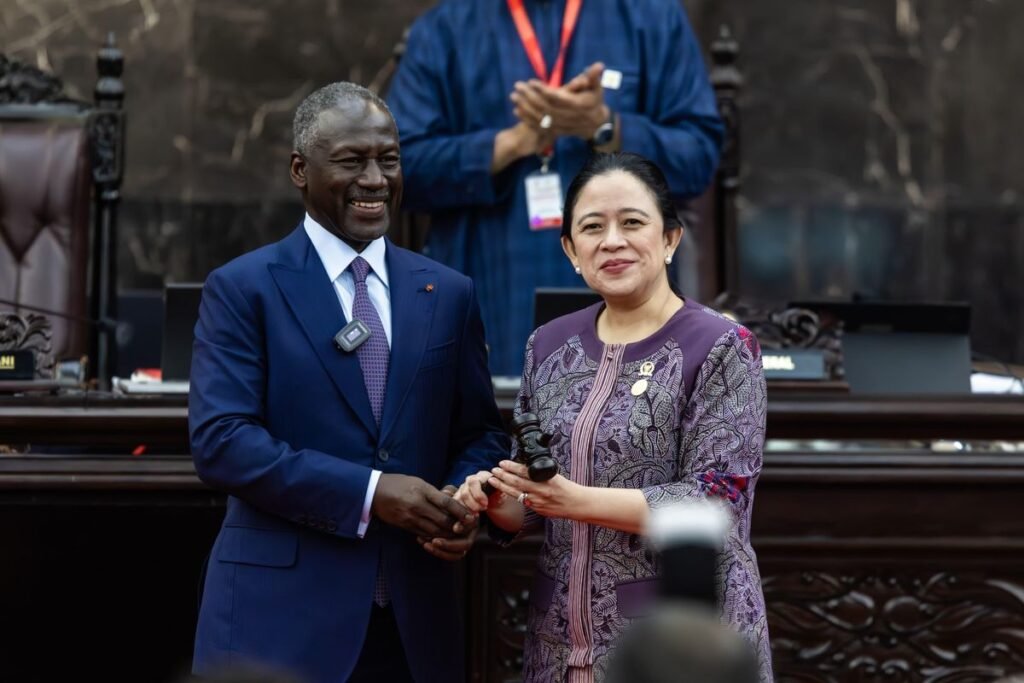
By Fakih Fadilah Muttaqin
Doctoral Student at UIN Syarif Hidayatullah and President of IWDN
Amid the constantly evolving and increasingly competitive global economic constellation, Muslim countries face a dual challenge: structural underdevelopment and institutional fragmentation. The Organization of Islamic Cooperation (OIC), despite comprising 57 countries and over 1.8 billion people, continues to see intra-OIC trade stagnate at only 19 percent—far behind the European Union (65 percent) and even ASEAN (30 percent).
This reality reflects that historical, cultural, and religious ties do not automatically translate into an integrated economic force. The absence of a synchronized legal ecosystem, stark differences in investment regulations, and the lack of cross-border collective projects have led to the Islamic world’s economic potential operating in silos, failing to reinforce one another.
In this context, the presence of the Parliamentary Union of the OIC Member States (PUIC) holds untapped strategic potential. PUIC must not remain a symbolic inter-legislative forum; rather, it should serve as a collective vehicle to formulate shared legal frameworks, pave the way for policy harmonization, and bridge legislative interests with global economic realities.
Indonesia’s leadership at this juncture deserves particular attention. At the 19th PUIC Conference in Jakarta on May 14, 2025, Indonesian House Speaker Puan Maharani was officially appointed as PUIC President for the 2025–2026 period. This position is not only diplomatically prestigious, but also a strategic mandate: to lead the transformation of Islamic world legislative cooperation from discourse to concrete action.
As the largest economy in Southeast Asia and home to the world’s largest Muslim population, Indonesia is well-positioned to play a central role—not merely as a host, but as the driver of a new collective vision for PUIC, particularly in promoting legal integration and economic cooperation across jurisdictions, which has long been suboptimal.
Structural Challenges
One of the main obstacles to intra-OIC trade and investment is the regulatory disharmony among member states. Significant disparities in investor protection, fiscal policies, and export-import procedures result in high transaction costs and slow business processes. Furthermore, the lack of transparent and coordinated cross-border infrastructure initiatives hinders the Islamic world’s potential from becoming a collective economic force.
Legislative institutions have yet to be fully engaged in addressing these issues—even though parliaments are the architects of every economic regulation and policy. Investment regulations, fiscal incentives, business facilitation, and the protection of foreign assets are all determined through legislation. Therefore, PUIC must be encouraged to take a more active role in bridging legislative interests toward building a stronger and more integrated Islamic economic governance.
Five Strategic Legislative Agendas for PUIC
As PUIC Chair, Indonesia has both the opportunity and responsibility to initiate inter-parliamentary reform among Muslim countries. At least five key agendas can be proposed:
- Harmonizing investment and trade regulations. PUIC could establish a task force to develop a shared legal framework on investor protection, taxation, and more uniform, efficient export-import procedures.
- Synchronizing national legislative agendas. By aligning priorities—such as clean energy, the digital economy, and sustainable agriculture—member states can accelerate an innovation-driven economic transformation rooted in mutual needs.
- Ensuring transparency in strategic projects. The role of parliaments in overseeing public-private partnerships (PPP) must be strengthened. PUIC could form an independent, cross-country audit committee to prevent corruption and ensure these projects deliver tangible benefits to the people.
- Clustering key sectors to reinforce collective supply chains. The Islamic world possesses abundant resources, but lacks effective connectivity. National legislations must support sectoral integration—for instance, linking Pakistan’s agriculture, the UAE’s logistics, and Indonesia’s fintech industries.
- Developing joint investment packages. PUIC could devise collective incentive schemes to attract major investors from East Asia, Africa, and Eastern Europe. Harmonized regulations and cross-jurisdictional legal protection are essential for building investor confidence.
Indonesia as a Policy Connector
These five strategic agendas will only be impactful if driven by leadership capable of linking visions and policies across nations. In this regard, Indonesia holds an ideal position as a policy connector—a bridge between national legislative initiatives and the broader need for collective economic integration in the Islamic world.
With its mature parliamentary democracy and experience in crafting inclusive economic regulations, Indonesia can play a catalytic role: convening member parliaments, formulating cross-border legislative priorities, and reconciling local interests with collective goals.
This role is not merely symbolic, but deeply strategic and substantive. By becoming a driver of policy connectivity, Indonesia can help PUIC evolve into a hub of collaboration that facilitates the creation of a legal ecosystem that is coherent, progressive, and future-oriented. If harnessed properly, Indonesia’s position could yield a legislative legacy that sustains the long-term economic integration of the Islamic world.